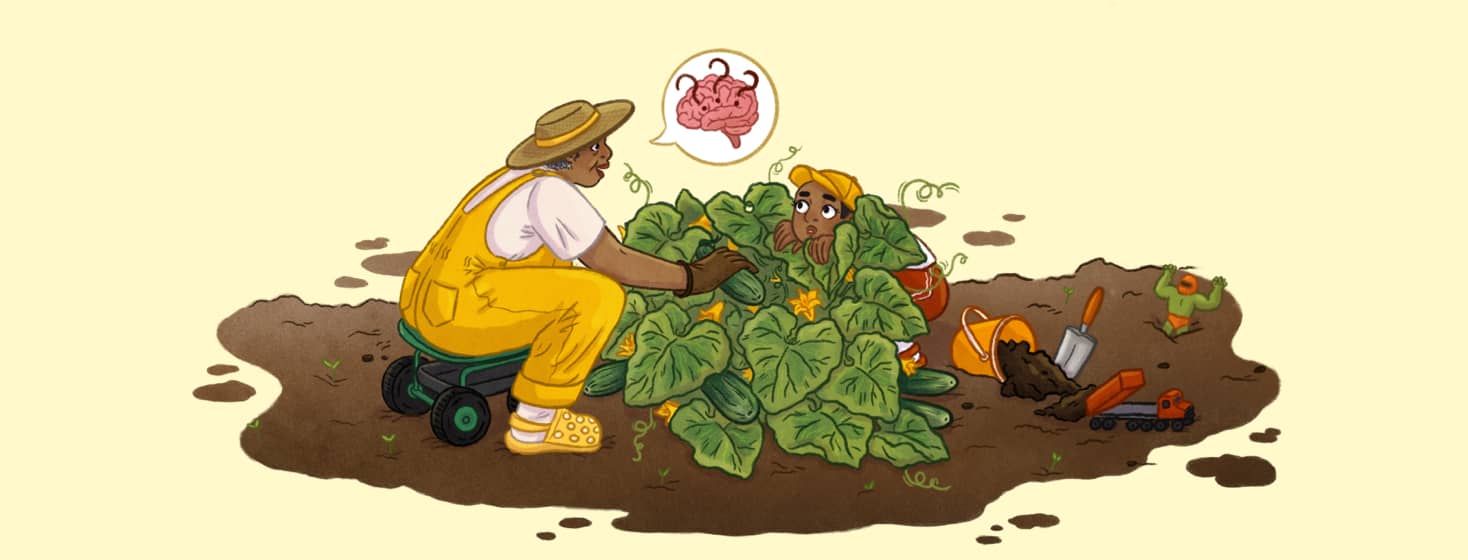Grandma Forgets Sometimes
This is a phrase our family often uses over the holidays. Our grandchildren are young - ages 2 and 5. Our son and daughter-in-law have wondered when the right time to tell them that their grandmother has Alzheimer's.
Obviously, they are too young to understand the whole concept. And, right now, "Grandma forgets sometimes" is probably good enough.
Finding resources to help explain
Alzheimer's advocate Maria Shriver wrote a book called "What's Happening to Grandpa?" I gave a copy to our daughter-in-law as it may help her explain things to the children when they are a little older.
It has been a while since I read the book, but it handles Alzheimer's and related dementias in a great story format. I have spoken with others that have also used the book for family members, and they told me that it helped answer a lot of questions young minds have.
There are other books out in the marketplace that deals with the subject, but this is the only one I am familiar with.
Talking to kids about Alzheimer's
Since I am an avid advocate for talking about Alzheimer's, my personal thought is that our little ones need to be aware of the changes they see in me.
Acknowledging that Grandma isn't having a good day or Grandma needs a little quiet time is something most children can relate to.
As they get older, a little more explaining might have to go along with that. But I don't think ignoring the issue is the right thing to do either.
Kids are attentative
Kids absorb more than we give them credit for. It is amazing to me how much they do retain at such a young age.
When it is time to tell them what is wrong with Grandma, I want it to be the truth, and I want them to understand that it is not contagious. We have been dealing with the COVID pandemic for so long that whenever anyone is sick, that is the first thing that comes to mind.
Honesty is the best policy
Our five-year-old grandson was really proud that he was able to get a vaccine for it. Don't we wish there was a vaccine for Alzheimer's? Honesty is the best policy when talking about Alzheimer's as long as it is done so with the right frame of mind and it is age-appropriate.
A good example is that this month I am having my knee replaced. The grandchildren know that I am going to have an operation to fix my knee. I will have a "boo-boo," and they understand that grandma won't be able to get down on the floor and play with them for a while. They won't be scared if they see me using crutches to get around.
Just be truthful about what you say and make it relatable.
Don't be afraid to have conversations about Alzheimer's
My hope is that all of us can talk about Alzheimer's when the need arises. Don't be afraid of it.
You don't have to go down a slippery slope and conjure up a devastating scenario. Talk about what is going on at the moment and what you can do to help make it better for everyone. Sometimes it is just as simple to say, "Grandma forgets sometimes."
How did you handle talking to kids about Alzheimer's? Tell us about your experience in the comments below, or share your story with the community.

Join the conversation